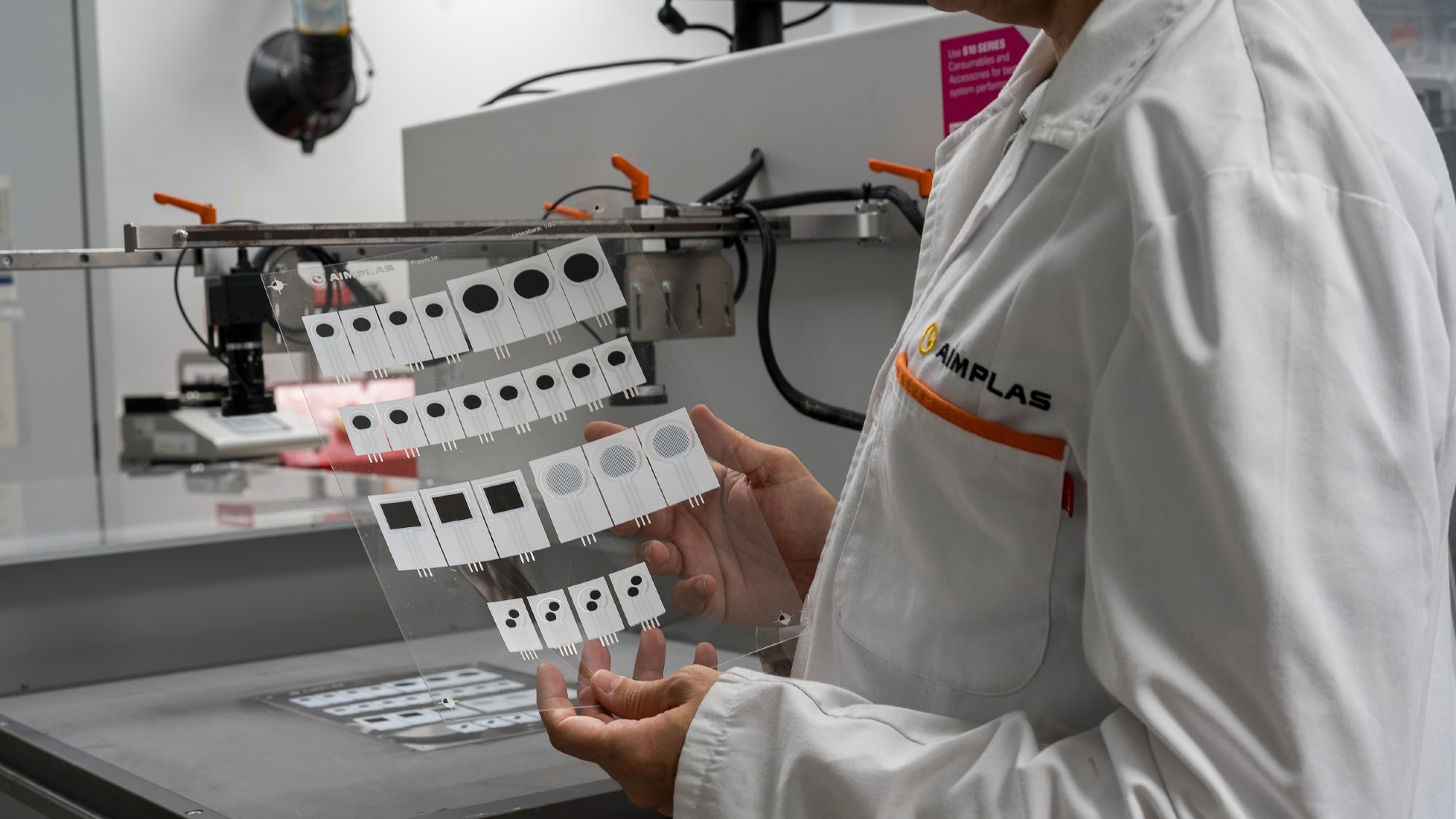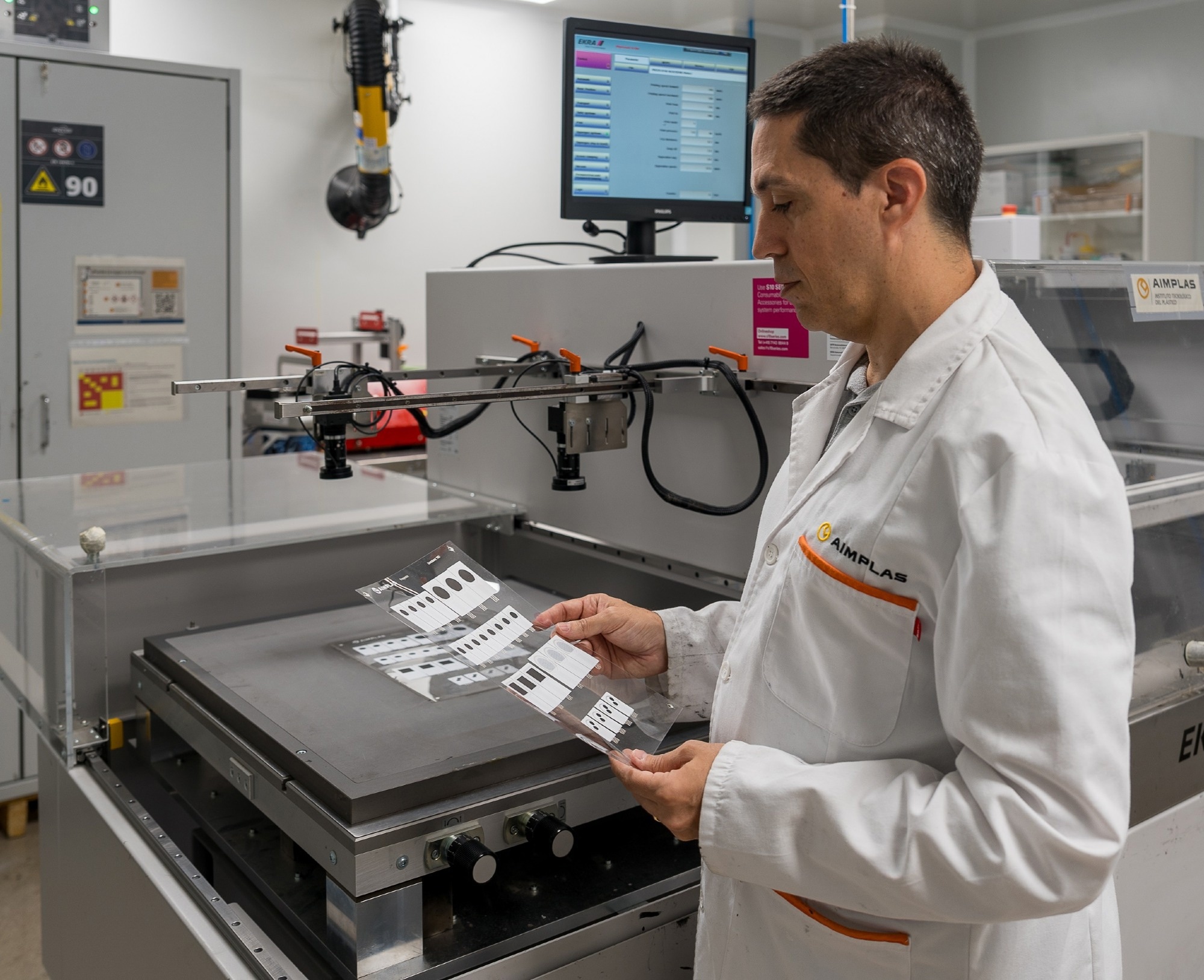The developments will be tested at Hospital General Universitario de Valencia, which participates in the NOSOSENS project through its research foundation, together with AIMPLAS, Química Deambla-Rogemar, Crespo Printing Group and Assessoria de Gestió i Comunicacions (AGC).
The aim of these new solutions is to reduce deaths caused by drug-resistant infections acquired in hospital settings, which could reach 10 million worldwide by 2050.

Image Credit: AIMPLAS
Valencia (3-10-2024). According to data from the European Centre for Disease Prevention and Control, approximately 4 million patients acquire a healthcare-associated infection (HAI) or nosocomial infection each year in the European Union and approximately 37,000 deaths are the direct result of these infections, making them a major cause of mortality. Infectious microorganisms acquired in hospitals are often resistant to many common antibiotics. By 2050, the number of deaths caused by drug-resistant infections is expected to increase to 10 million worldwide, thus posing a serious public health problem.
Early detection of nosocomial infections and effective disinfection of hospitals and healthcare centres are key to reducing these figures, but the methods currently used have their limitations. Hence the creation of the NOSOSENS Project, which is working on a new bio-based disinfectant designed to eliminate the main pathogens on a new, flexible and portable biosensor platform. It uses printed electrochemical sensors for rapid, selective detection of Staphylococcus aureus, which is resistant to methicillin and responsible for 11% of nosocomial infections.

Image Credit: AIMPLAS
The Fundación de Investigación Hospital General Universitario de Valencia, the Plastics Technology Centre (AIMPLAS), the companies Química Deambla-Rogemar and Crespo Printing Group, coordinated by the Assessoria de Gestió y Comunicacions (AGC), are collaborating on this research project funded by the Valencian Institute for Competitiveness and Innovation (IVACE+i) through the call for Strategic Projects in Cooperation 2023 of the Valencian Innovation Agency in conjunction with the ERDF Programme.
Immediate test and environmentally friendly disinfectant
The diagnostic method par excellence currently used in hospitals for the prevention of nosocomial diseases involves the detection of pathogens by means of cell culture microscopy on a monthly basis. The results become available in four to five days on average. The new portable electrochemical biosensor platform from NOSOSENS provides immediate specific detection and quantification of bacteria from the Staphylococcus aureus family. It will also include a monitoring, management and display system for data and alerts.
The current problem with cleaning products is that pathogens’ antimicrobial resistance makes disinfectant solutions less effective Stronger disinfectants such as peracetic acid must therefore be used, though it causes long-term damage to surfaces and cannot be included in daily cleaning protocols in healthcare facilities. The solution proposed by NOSOSENS has a high biocidal potential, but is biobased and biodegradable, making it less aggressive and more environmentally friendly.
Both innovations will be tested at Hospital General Universitario de Valencia, which will be equipped with a portable, easy-to-use early detection system for healthcare personnel to test for this type of bacteria, as well as an effective and sustainable pathogen elimination system for surgical elements and areas. Synergies with the sensorization platform will optimize disinfection processes for safety against hospital-acquired infections. This system will make it possible to trace and control the infectious agent and take rapid action to eliminate surface colonization, as necessary, thus minimizing the risks associated with hospital stays.
About AIMPLAS
At AIMPLAS, the Plastics Technology Centre, we have a twofold mission: to provide added value to companies so they can create wealth and quality employment, and to meet societal challenges to improve people’s quality of life and ensure environmental sustainability.
We are a non-profit research association and member of REDIT (Network of Technological Institutes of the Valencia Region) offering enterprises in the plastics industry comprehensive and customized solutions, including development and innovation projects, training, competitive and strategic intelligence, and technological services such as analysis, testing and technical assistance.
